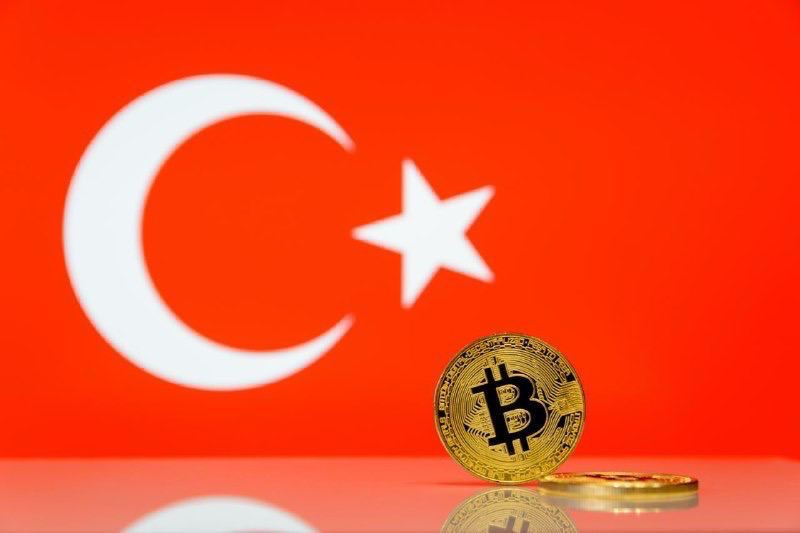The recently released Chainalysis 2023 Cryptocurrency Geography report explores the countries around the world with the highest grassroots adoption of cryptocurrency. In the study, researchers calculated a score for each country based on on-chain crypto activity and volume, weighted by purchasing power parity (PPP) per capita and other relevant metrics. As a result, instead of listing the richest, largest economies with the most developed cryptocurrency markets, the company listed the countries where ordinary people have adopted crypto the most. Türkiye has gained a significant place in the 2023 Global Crypto Adoption Index. The country represents a leader in grassroots cryptocurrency adoption among Middle East and North Africa (MENA) countries, so let’s take a look at the research findings and what they mean for Turkey’s Muslim population…
MENA leader in crypto adoption
Chainalysis ranked Turkey 12th among all countries in the overall index. The MENA country ranked 11th in centralized value received, 9th in individual centralized value received, 35th in peer-to-peer (P2P) exchange transaction volume, and 12th in both value received through decentralized finance (DeFi) and individual DeFi protocols. The only other country from the same region to make it into the Chainalysis top 20 rankings is Morocco, which ranks 20th in the index. Turkey is also the fourth largest market for crypto assets by raw transaction volume. Positive developments in Turkey coincide with a period when negative trends in the market are more evident. Grassroots adoption of crypto assets decreased year-on-year (YoY) in Q1 2023 and Q2 2023, according to data from Chainalysis.
However, there has been some recovery since late 2022, when the FTX fiasco wreaked havoc on the market. However, the index’s score is still far from the all-time high recorded in Q2 2021. During the period under review, the only category of countries where total grassroots adoption remained above the level in Q3 2020 were lower-middle-income (LMI) countries, representing approximately 40% of the population. Chainalysis measured the highest recovery rates in this area last year in these economies. According to researchers, this is a promising trend for crypto asset prospects. According to their analysis, countries that fall into this category are generally on the rise and have undergone significant economic development over the past few decades with dynamic, growing industries and populations.
Centralized crypto exchange activities raid
In Turkey, central exchange (CEX) activities seem to be more dominant with a market share of 58.9%. In comparison, decentralized exchanges (DEXs) account for only 34.5% of the country’s citizens’ activities, while the “Other” and “Other DeFi” categories account for 2.5% and 4.1%, respectively. According to the researchers’ analysis, this trend is due to the country’s citizens becoming more focused on acquiring digital assets to counter currency devaluation, with the inflation rate of the Turkish Lira reaching nearly 60% in August 2023. In addition to many citizens converting their TL into USDT and other stablecoins, Turkey is also the MENA leader in NFT activities based on web traffic.

Helping Muslims embrace crypto
In terms of grassroots adoption of crypto, Turkey continues positive trends that could help more of its citizens adopt crypto assets. However, considering that the country has the eighth largest Muslim population in the world at approximately 85 million, these cryptocurrencies are required to operate under the umbrella of Islamic finance. This is Sharia compliance that ensures that Muslims do not have to participate in haram activities such as riba or unethical business practices when using decentralized applications (dApps).
Modern crypto projects wishing to prove Sharia compliance must obtain a Fatwa issued by the world’s leading Muslim authorities. These fatwas are issued by renowned scholars with extensive experience in the field of Islamic finance, thus increasing the credibility of the project. They evaluate whether a project qualifies as a crypto asset in the Blockchain and crypto environment and issue a certificate that complies with Islamic principles. Such a Fatwa indicates that a project meets all the criteria to be a halal entity and provides the Muslim community with a financial tool for the Digital Age that facilitates seamless transactions between users. Mohammed AlKaff AlHashmi, Founding Partner of Islamic Coin, says:
Sharia-compliant projects are designed with the Muslim community in mind. However, this does not mean that the Muslim community is the only audience a project aims to serve. I believe it has universal appeal for all who see value in a financial framework that encourages ethics, transparency and innovation, while ensuring compatibility for Muslims as it is aligned with the principles of Islam. In this way, it also acts as a bridge between crypto-savvy and non-crypto-savvy audiences to enhance our value proposition and appeal to a wide group of people.

Sharia-compliant finance in Turkey and beyond
The sharia-compliance and ethics-first financial ecosystem aims to engage more Muslims from Turkey and beyond into crypto in line with the principles of Islam. Doing so could potentially accelerate grassroots adoption of cryptocurrency in many countries and regions. As these trends continue, Turkey’s pioneering role in grassroots adoption of BTC and altcoins could become a model for nations seeking to incorporate cryptocurrencies into their financial systems while preserving cultural and religious values.
To be informed about the latest developments, follow us Twitter’in, Facebookin and InstagramFollow on . Telegram And YouTube Join our channel.
